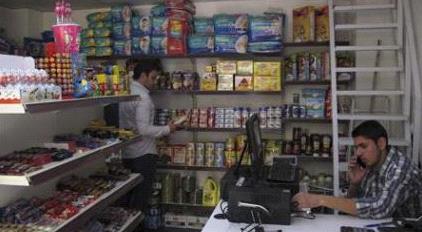Ammon News - By Suleiman Al-Khalidi/ Reuters
AMMAN - In the bustling Baramka district in the heart of Damascus, sounds of iron hammering by mechanics busily repairing cars can be heard next to the large excavated site of an uncompleted $400 million twin skyscraper project.
Since the two-year-old civil war in the country, the prime real estate site now houses many of the artisans who fled from the capital's southern and eastern suburbs.
Those areas, the country's biggest concentration of small workshops and garages, are now laid to waste after becoming a major frontline between rebels seeking to topple President Bashar al-Assad and his army.
"My workshop was shelled and I had no choice but to move here. Thank God some of my old customers are now coming back," said Wael Asfour, whose 40 square meter garage in the working class Herasta suburb that employed six apprentices was burnt after two mortars hit it last November.
After over two years of conflict that has killed more than 90,000 people, Syrian business owners are finding ways to rebuild what they can.
With access to Syria limited, this story was reported by speaking to business owners and other residents by telephone.
From blue collar skilled workers to displaced shopkeepers and traders, Syrians are finding ways to sell goods like garments and vegetables on streets of once-quiet affluent residential areas of Damascus, such as Qura al-Assad and Sabura.
Foreign brands like Italy's Benetton have ceased production of clothes under license at Syrian factories. Instead, hawkers now sell cheap goods outside their boutiques in the capital's once fashionable Hamra Street.
"They are all trying to scrape a living, their shops had been demolished in some areas and they are now squatting near a shop and selling. The street is filled with traders who want to live. These makeshift markets have helped depress prices," said Nabil Sukr, a leading economist.
The destruction of the old souks and bazaars in the northern city of Aleppo - once the country's economic engine, now a frontline - has shifted business activity to the more peaceful residential areas in the western part of the city.
Many of those traders who lost businesses have turned their gardens and homes into shops. Others set up tents or even turned their cars into shops.
"People have to eat and drink. What sells now is food and drink. This is the one thing people cannot do without," said Osama Mualem, a car dealer whose business went bust, and who now sells vegetables and produce in a main street in Aleppo's Halab al-Jadida district.
Even in the once teeming working class districts of the sprawling city such as Sakhour, Salah ed-Din, Bustan al-Qasr where whole buildings have been razed to the ground, butchers and fruit vendors who had closed for months have reopened.
In rebel-held rural areas in northern, western and eastern parts of Syria, the rupture of transport links and lack of security has turned once sleepy rural towns such as Daret Azah, Azaz and Anadan into small trading hubs.
Proximity to Turkey has helped traders flood markets with consumer goods from diapers to margarine to dairy products. Leading Turkish brands have now taken much of the market share once dominated by Syrian industry that boasted 130,000 plants and workshops and has now largely been decimated.
BUSINESS ACUMEN
Leading businessmen, officials and traders say the country's wealth before the crisis has helped it avoid starvation or breakdown of basic services during two years of war.
The government boasts that there are no shortages of basic commodities in areas it controls. It has stepped up imports of rice sugar and wheat that are resold at subsidized prices.
"Today subsidized bread is cheaper than anywhere in the region. If any other country has faced such negative conditions and economic warfare like Syria it would not have survived," said Mohammad Zafir Muhabik, Syria's Economy and Trade Minister.
However, the United Nations says bread is frequently unavailable at the subsidized price, with Syrians forced to pay many times more than the official price.
Some of Syria's top textile makers, a major hard currency earner before the war, have outsourced production to China or moved their factories offshore to places like Egypt.
In Aleppo, the home of the country's once-growing pharmaceutical industry, assembly lines in drug firm ALPHA have continued, albeit at lower capacity.
Trade has crossed the front lines. Traders said some merchants had used financing from the state bank to import goods into the two main Mediterranean ports, Tartous and Latakia, only to sell them at a premium in rebel areas or even smuggle them into Turkey or Lebanon.
"These are war profiteers," said Ahmad Zein, a major Damascus-based tea importer. "They do not have a country, their country is their money and they go across every checkpoint paying their way."
A brain drain has deprived the country of some of its most talented human capital, with skilled workers either sitting idle in camps in neighboring countries or providing a pool of cheap immigrant labor in neighboring Lebanon, Turkey and Jordan.
Billions of dollars of capital flight by the merchant and business elite has almost starved the country of investment in the last two years.
Top industrialist and deputy head of the Damascus chamber of industry Essam Zamrick said the war would end sooner or later, but whether Syria's economy can recover depends on how much damage is done.
"They will at the end come to the table to negotiate a political settlement. But what I fear for Syria is the destruction of its infrastructure. If it collapses, Syria collapses," he added.
